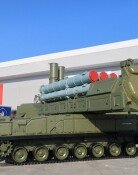North Korea Is To Open And Reform Economy
North Korea Is To Open And Reform Economy
Posted May. 15, 2001 08:25,
A closed meeting to discuss about the issues of Korean peninsula was held at Shanghai Social Science Academy, Shanghai, May 9-11. About 30 experts from Korea, China, and the US shared their opinions on the issues such as the possibility of the North Korean economic reformation. The topic of this conference, co-hosted by the US Institute of Korean Economy and Atlantic Council, was ``South-North reconciliation, Economic cooperation, and the function of major powers.`` The participating experts agreed on general goals such as `preservation of peace in Korean peninsula` and `support for the reunification of the South and the North.` But there were diverse opinions on North Korea and the effective policies related with North Korea.
Gaps in the North Korean understandings: Significant differences among the experts were revealed concerning how to understand the potential threat from the North. Chinese experts treated the North in a friendly way. They asserted that the North Korean military posture is basically defensive. A Chinese expert pointed out that there is no single evidence that the North had created a nuclear weapon. On the contrary, US experts argued that there exists a clear threat of North Korea to the security of this area. For the Bush administration, to clarify all potential threatening elements is the condition to strengthen the economic cooperation.
Which direction is the North heading: Experts agreed on the necessity of North Korea to open its door to the world and to adopt new economic policies. Chinese experts believed that the North is seriously considering its economic reformation. Yui Xin Tian, director of Shanghai Institute of International Affairs, emphasized that the visit of the North Korea’s National Defense Commission Chairman Kim Jong-Il to Shanghai reveals his intention for reformation and openness. However, the experts disagreed on which way the North will choose. Some Chinese scholars said that the North will adopt the model of Chinese reformation. Others asserted that the North will probably follow the models of Korean former president Park Chung-Hee or pursue a third way independently.
North Korean policy of the Bush administration: Chinese participant expressed with unanimous voice their concerns about the Bush administration’s Asian policies and his way of thinking based on cold war. Prof. Xia Li Ping, Shanghai Institute of International Affairs, remarked, ``[The US] utilizes North Korea to justify its establishment of NMD and therefore the US might not want to improve its diplomatic relationship with the North.`` Joseph Winder, director of Institute of Korean Economy, however said that the Bush administration will continue to support the North Korean policies of the South, Geneva agreement with North Korea, continual discussions with South Korea and Japan, and humanitarian support to North Korea. ``A slight realistic modification will eventually make North Korean policies more stable,`` he emphasized. Some Chinese participants urged the US to resume dialogue with the North seize this opportunity.
The potential impact of the Power’s competition: Most Chinese experts and some US participants agreed that increased tension between the US and China will cool down the mood of the South-North reconciliation. They said, as evidenced by the past quadripartite conference, the relationship between the two Koreas can be harmonious only when China and the US maintain a good relationship. However, Chou Jian Ming, former Chinese ambassador in Korea, mentioned that the South and the North do not need to concern about the relationship of the power countries. He pointed out that the Inter-Korean Basic Agreement was made in 1991 when the relationship between the US and China was fragile after the Tienanmen incident.
Strengthening the inter-Korean economic cooperation: All participants agreed on the economic cooperation as the cornerstone of the North Korean policies and they presented various opinions. Bradley Bobson, North Korean counselor of the World Bank Group, emphasized that the North Korean projects need to have strong economic grounds. He also pointed out, ``Koreans are interested in the investments to the North without condition. However, foreign investors and international development organizations are more interested in the investment effect and the account of profits and losses.`` Contrary to the Chinese experts who had emphasized the significance of the Najin-Sunbong special economic zone, Baptson commented that the project was ``A good try but a failed one.``
Strengthening the regional security: Some participants emphasized the urgent necessity to establish the regional security system. Chinese experts anticipated that the Inter-Korean peace treaty would be a systemic foundation for the security cooperation in the area. He also asserted that the improvement of the security would accelerate the strengthening of the ties between the two Koreas.
[Peter Baek, research director of the US Institute of Korean Economy, Donga`s overseas columnist]
Headline News
- Ukraine says N. Korea’s first troops arrive in Kursk
- N. Korea begins installing barriers on Donghae Line after 'bombing show'
- K-defense operating profit expected to jump by 200% in Q3
- Seoul City launches DDP rooftop tours, celebrating 10th anniversary
- Ahn Jung-geun’s historic writings return to Korea in 15 years







